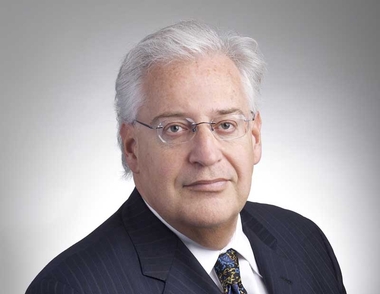Trump's pick for Israel envoy signals break on US policy

WASHINGTON (AP) — Donald Trump's selection of a hard-line pro-Israel advocate as his U.S. ambassador to the Jewish state could signal the end of decades of American support for the establishment of an independent Palestine.
The president-elect's transition team already has asked the State Department to assess how to move the U.S. embassy to Jerusalem, according to one official, underscoring Trump's commitment to back Israel in ways no American leader has before.
Trump isn't the first incoming president to promise to move the embassy from Tel Aviv. But his team's State Department request and comments from aides and advisers suggest he will be the first to charge into what promises to be a diplomatic and political minefield.
The ambassador-designate, David Friedman, has long ties to Israel's settler movement and has supported stances on the far-right of Israel's political spectrum, well beyond those of Prime Minister Benjamin Netanyahu. The Orthodox Jewish lawyer from New York has suggested Trump would support Israeli annexation of parts of the West Bank, effectively eliminating the possibility of a Palestinian state. He has served as president of American Friends of Bet El Institutions, which supports a settlement.
"This is about as sharp a break with past policy as I've seen in the last 25 years," said Aaron David Miller, a Mideast adviser under five American presidents of both parties.
Incoming U.S. leaders have often massaged the long-recited policy points on the Israeli-Palestinian conflict, such as when Bill Clinton's team stopped calling Israeli settlements in east Jerusalem and the West Bank "obstacles to peace" or when George W. Bush eliminated the high-profile position of special Middle East coordinator. Since President Jimmy Carter, however, each has stopped short of building a new embassy in Jerusalem.
Doing so could be perceived as recognizing Israel's right to the entire city, even though the U.S. has promised for years to help found a Palestinian state with east Jerusalem as its capital. And it would isolate the U.S. from almost the entire international community, including its closest European allies and the Arab states it relies on to fight the Islamic State group and other threats.
"Moving the embassy was always considered too risky, too sensitive, and it was never clear how it really advanced U.S. interests," Miller said. Going through with the move, he added, "will feed every jihadi's wildest dreams" because it will feed into the notion of a Jewish takeover of the city.
Trump advisers have insisted in recent days that the president-elect will follow through on his call for moving the embassy.
"He has made that promise," Trump adviser Kellyanne Conway told reporters Thursday. "I can guarantee you, just generally, he's a man who is going to accomplish many things very quickly."
Palestinian reaction was fierce Friday.
Moving the embassy "would be the end of the peace process as a whole," chief negotiator Saeb Erekat told reporters in the West Bank, having recently returned from Washington where he held talks with Secretary of State John Kerry.
Trump said Friedman would "maintain the special relationship" between the U.S. and Israel. Friedman said he looked forward to carrying out his duties from "the U.S. embassy in Israel's eternal capital, Jerusalem."
Also voicing anger were liberal Jewish and pro-peace organizations such as Americans for Peace Now, which said Friedman would add "fuel to the Israeli-Palestinian fire."
Rabbi Rick Jacobs, Union for Reform Judaism's president, posted a letter online he received from Friedman this summer in which the attorney says the long-time U.S. policy consensus on a two-state solution "is, to me, entirely irrelevant."
"The numerous proposals and initiatives for a two-state solution over the years have brought neither peace nor security to the State of Israel," Friedman wrote, blaming the conflict on "one thing only — radical Islamic jihadism, a cancer that infects Israel and much of the rest of the world."
While Israelis are "overwhelmingly well-intentioned, well-informed, and non-hateful," the Palestinians "teach their children to hate and murder Jews," he said. A Palestinian state in the West Bank "will bring missile attacks on the entire population of Israel."
The Palestinians want the West Bank, the Gaza Strip and east Jerusalem — areas Israel captured in the 1967 Mideast war — for their state. Nearly 600,000 Jewish settlers now live in the West Bank and east Jerusalem.
Trump appears serious about his intentions.
A U.S. official told The Associated Press that the State Department recently assessed the costs and logistics of moving the embassy, upon request from Trump's transition team. The document didn't address possible diplomatic ramifications, said the official, who wasn't authorized to speak publicly and demanded anonymity.
An embassy in Jerusalem would put America's Arab allies in a difficult position.
Although Saudi Arabia and other Sunni monarchies have edged closer to Israel, linked by their dislike for Iran, Jerusalem's status as Islam's third holiest city and the Palestinian cause's overwhelming support on the Arab streets would make it hard for them not to respond. One Saudi prince even has suggested the entire Islamic world would pull its ambassadors from Washington, although that is unlikely.
"Jerusalem is an emotional issue and one the Sunni Arabs can't really ignore," Dennis Ross, a top U.S. peace mediator under Presidents George H.W. Bush, Bill Clinton and Barack Obama, said.
Moving the embassy isn't impossible, he said, if Trump lays the groundwork with Middle East partners. Presumably, that would entail offering the Palestinians something.
Ross seemed less concerned about Friedman specifically.
"Ambassadors to Israel carry out the policy," he said. "They don't make the policy."
By BRADLEY KLAPPER, Associated Press.
Copyright Associated Press. All rights reserved.
The Gayly - 12/16/2016 @ 1:38 p.m. CST.





